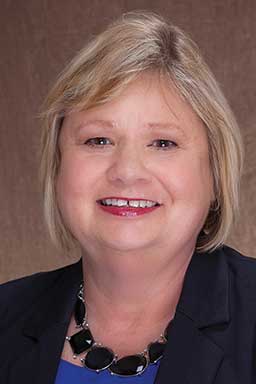News from the National Pork Board (Sep 2016)
Just prior to World Pork Expo, the National Pork Board named Bill Even, an agriculture-industry leader with substantial senior management experience in crop and livestock production, as its new chief executive officer. Even began his new role June 6, attending the board’s meeting and World Pork Expo in Des Moines, Iowa, in his first official week.
“As a fourth-generation farmer, I have deep, personal knowledge of the challenges facing pork producers today,” Even said. “I look forward to working on behalf of America’s more than 60,000 pork producers to build consumer trust, drive sustainable production, and grow consumer pork demand.”
Before joining the National Pork Board, Even managed DuPont Pioneer’s global industry relations strategy. In that role, he built collaborative stakeholder relationships in the areas of seed, biotechnology, biofuels, and farm policy.
For more information, contact Bill Even at BEven@pork.org or 515-223-2600.
National Pork Board elects new officers
Jan Archer, a pork producer from Goldsboro, North Carolina, was elected as president of the National Pork Board at the organization’s June board meeting in Des Moines, Iowa. The National Pork Board comprises 15 farmer-directors representing America’s pig farmers.
“I want to thank my fellow board members for the confidence they are placing in me, and I see much opportunity for our industry in the year ahead,” Archer said. “I have been involved in pork production for more than 40 years, and I have never seen a greater level of consumer interest in pig farming. I am proud of the work we do every day on our farms and look forward to sharing our stories of responsible animal production with packers, retail and foodservice customers, and consumers.”
Archer and her husband, Jack, are owners of Archer Farms LLC. The sow farm markets 28,000 weaned pigs annually and raises corn, soybeans, and hay. She also operates Archer Consulting, an enterprise that provides personnel training to the pork industry, including certification in Pork Quality Assurance Plus (PQA Plus), Youth PQA Plus, and Transport Quality Assurance for producers and allied industry representatives.
Serving with Archer on the board as vice president is Terry O’Neel, a pork producer from Friend, Nebraska. Steve Rommereim, a pork producer from Alcester, South Dakota, was named treasurer. Derrick Sleezer, a pork producer from Cherokee, Iowa, will serve as immediate past president. The four executive officers will serve 1-year terms in their positions, beginning July 1.


Jan Archer (left) and Terry ONeel (right)
“We face many challenges, from the threat of emerging diseases to the responsible use of antibiotics,” Archer said. “But each issue can be managed from our platform supporting scientific research, producer education, and pork promotion.”
Both Archer and O’Neel were confirmed to serve a second 3-year term. Also appointed to the National Pork Board were Gene Noem, Ames, Iowa; Alicia Pedemonti, Hopkinton, New Hampshire; and Michael Skahill, Williamsburg, Virginia.
For more information, contact Jamie Byrnes at JByrnes@pork.org or 515-223-2637.\
Youth exhibitor’s guide to new antibiotic rules now available
The Pork Checkoff’s Science and Technology team has created a new six-panel brochure aimed at giving youth swine exhibitors the information they need to be compliant with the new antibiotic regulations that go into effect on January 1, 2017.
“We have created several producer-specific resources for adult pork producers, but we didn’t have anything specifically for the growing world of youth swine exhibitors on antibiotic changes until now,” said Mike King, director of science communications for the National Pork Board. “We’re pleased to offer this new tool to state organizations, 4H clubs, FFA teams, national purebred associations, and others to get the news out to young people about how the new rules could affect them and their show pigs in 2017.”
To download a copy or order hard copies, visit pork.org and go to the Antibiotics Resource Center or the Pork Store. For more information contact Mike King at MKing@pork.org or 515-223-3532.
Animal Science Committee’s top five research accomplishments
The mission of the Pork Checkoff’s Animal Science Committee is to wisely invest Checkoff funds into research that provides solutions to challenges faced by US pork producers. The areas of research in which they invest must benefit all producers, have significant impact, and be applicable at the farm level. Traditionally, the Animal Science Committee has engaged in research focused on improving the efficiency, productivity, and competitiveness of all producers through improvements in genetics, reproductive efficiency, swine nutrition, and pork quality.
1. Development of the PRRS Host Genetics Consortium: This Consortium effort was a collaboration with the Swine Health Committee, which eventually invested over $18M in federal, university, and industry support. This effort is also recognized as the largest research collaboration with industry in the history of the United States Department of Agriculture- (USDA-) Agricultural Research Service. The consortium was a unique and extraordinary collaboration of industry, academia, and federal agencies.
2. Mapping of the Swine Genome: The Animal Science Committee, along with several state pork organizations, were critical to the success of this project and in securing federal support by raising the initial funds needed to launch this effort. After the NPB commitment was established, further funding was then picked up, contributed by the USDA and ultimately Genome Canada. The initial pork industry investment of $900,000 eventually was leveraged into over $30 million in additional research by other funding agencies and leveraged producer dollars through financial commitments by other organizations This also led to the release of the pig genomic map in 2011.
3. Consumer Taste and Preference Study: The intent of the original consumer preference study was to examine consumer perceptions of “Pork Quality,” including the cooking temperature and preparation of fresh pork. This study, conducted in partnership with the NPB Domestic Marketing Committee, was unique in that it was conducted nationally and featured a broad cross section of pork consumers. Results indicated the value of pork quality and reinforced taste and tenderness as key attributes of fresh pork. Armed with the results of that study, the Pork Quality and Safety Committee worked with the USDA to safely lower the endpoint cooking temperature of pork from 160°F to 145°F with a 3-minute post-cooking rest.
4. Development of the Feed Efficiency Research Consortium: Support for this consortium was initiated in 2007 in response to the rapidly rising cost of feed grains and concentrates when the Renewable Fuel Standard was put into place. The original consortium comprised 25 members from the allied industry, commodity boards, and state pork organizations, with the purpose of serving as a vehicle for identifying areas of need and consolidating research related to improving efficiency of utilization of nutrients in swine diets.
5. Sow longevity research: Sow longevity research has been a priority for the NPB and the pork industry for many years. Working with the Animal Science Committee and numerous pork producers, the early research focused on defining the problems and developing mitigation tools and strategies. This early work led to the development of the current Sow Lifetime Productivity effort at the NPB, which is a large-scale, coordinated research effort aimed at increasing the number of quality pigs a female produces from the time she becomes breeding eligible until she leaves the herd.
For more information, contact Chris Hostetler at CHostetler@pork.org or 515-223-2606.